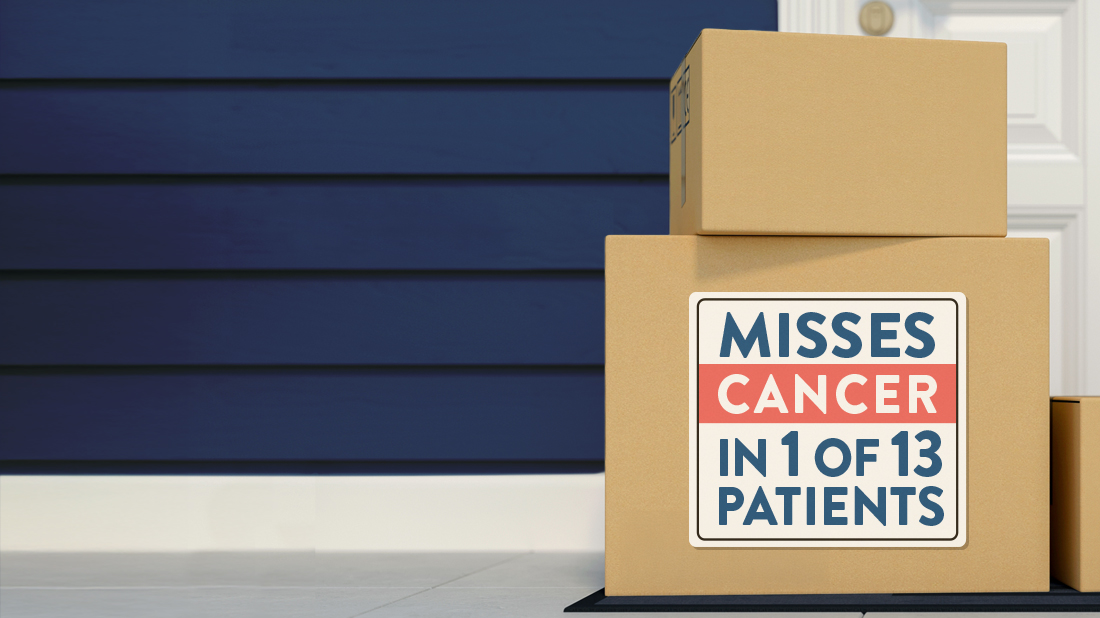
When it comes to screening for colon cancer, you have a few options, and convenience can be tempting. At-home stool tests like Cologuard® let you collect a sample at home and mail it in for testing. Sounds easy, right?
While these tests may be helpful for people in certain circumstances, it’s important to understand they’re not for everyone.
What is Cologuard®
Cologuard® is a stool-based test that looks for certain DNA changes and blood in your stool that may be linked to colon cancer or advanced polyps. It’s meant for people at average risk of colon cancer, with no symptoms.
Cologuard® is not recommended if you:
- Have a personal or family history of colon cancer or advanced polyps
- Have a history of inflammatory bowel disease (IBD), such as Crohn’s disease or ulcerative colitis
- Have had a positive stool test or symptoms like blood in your stool, unexplained weight loss, or ongoing abdominal pain
- Have a genetic condition that increases colon cancer risk (like Lynch syndrome or FAP)
[Reference: https://www.cologuard.com/risk-information]
The Limitations of Cologuard®
While Cologuard® may be convenient, it has limitations:
- False negatives: Cologuard® may miss cancer in about 1 out of every 13 people who actually have it. That means the test could come back “normal” even if cancer is present.
- False positives: About 1 in 7 people will get a positive result when they don’t actually have cancer. This can cause unnecessary stress and lead to a follow-up colonoscopy anyway.
Potentially dangerous false negatives and stressful false positives are something to consider when deciding on a screening method for cancer.
[Reference: https://www.cologuardhcp.com/resources/faq. "False positives and false negatives do occur. In a clinical study, 13% of patients without colorectal cancer or advanced adenomas received a positive result (false positive) and 8% of patients with cancer received a negative result (false negative)."]
Colonoscopy: The Gold Standard
Colonoscopy is considered the most accurate way to screen for colon cancer. Unlike stool tests, it doesn’t just find cancer — it can prevent it by allowing doctors to remove pre-cancerous polyps during the procedure.
While your insurance company may pressure you to use an at-home test and may send a kit without you even asking for one, remember that you have choices. Under the Affordable Care Act (ACA), private insurers and Medicare are required to cover recommended colorectal cancer screening tests, including colonoscopies, with no out-of-pocket costs (like co-pays or deductibles).
When Should You Get Screened?
- Everyone age 45 and older should get screened for colon cancer — even if you feel healthy.
- If you have a family history, certain health conditions, or symptoms, your doctor may recommend getting checked even sooner.
The Bottom Line
At-home tests may be convenient — but colon cancer isn’t. Get the best screening method available to you. Talk to your doctor today.